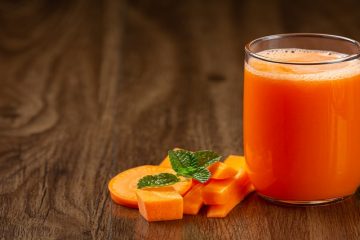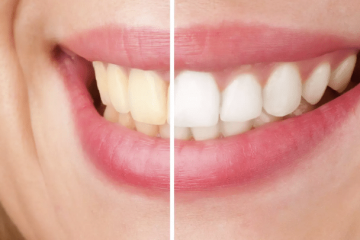
- Anti-inflammatory food can help reduce inflammation and chronic diseases that are associated with it.
- Nuts and seeds, fruits, vegetables, and proteins like fish are all anti-inflammatory foods.
- Anti-inflammatory diets eliminate foods such as processed meats and high-sodium snacks.
Chronic inflammation has been linked to some of the most debilitating and common diseases. These include Heart Disease, Diabetes, Arthritis, Cancer, Alzheimer’s, and Crohn’s. Research shows that a healthy lifestyle can help to reduce inflammation.
Some foods can trigger an inflammatory response while others have antioxidants or other substances which can help to keep it under control. This principle is the basis of the anti-inflammatory diet.
Here is a list that includes foods that either cause inflammation or reduce it, along with a seven-day anti-inflammatory diet plan.
Foods that are anti-inflammatory and foods that are inflammatory.
The anti-inflammatory eating plan encourages the consumption of whole foods, such as fruits, vegetables, and nuts.
According to a research report from 2015, one of the key factors in reaping the health benefits of this diet was decreasing your intake of pro-inflammatory Omega-6 fatty acids found in vegetable oils while increasing your intakes of anti-inflammatory Omega-3 fatty acids found in oily fishes and seeds.
Anti-inflammatory meal plan.
This meal plan was designed to improve gut health and reduce inflammation, according to Allen Campbell – a Boston chef who served as Tom Brady’s and Gisele Bundchen’s personal chef.
Day 1
Breakfast: Cinnamon walnut chia pud with sliced banana.
Lunch: Rosemary Lemon Turkey Sliders, Sweet Potato Hash, and Marinated Green Beans with Sauerkraut.
Dinner: Poached cod with mashed roasted butternut squash and fennel, or celery, or onions. Also, spiced collards or spinach, or kale.
Day 2
Breakfast: Chia pudding with almond milk and berries.
Lunch: Rice bowl of cauliflower with lentils curried, roasted broccolini or broccoli, and apple cider vinegar.
Dinner: Seared avocado and pickled radish with seared bok choy or spinach, broccoli, and sesame-orange tempeh.
Day 3
Breakfast – Banana, almond, and yogurt parfait with toasted nuts.
Lunch: Salad of egg and avocado with wilted greens and lemon caper dressing (or any other vinaigrette you can find at the store).
Dinner: Lemongrass Garlic Chicken Bowl with Roasted Broccoli and Carrots, Pickled Daikon (or Turnips or Radishes), Scallion Vinaigrette.
Day 4
Breakfast: Pineapple green banana and Maca (or chia seeds or coconut) smoothie
Lunch: Black bean taco bowl, marinated red cabbage slaw (or pico de gallo), avocado, and lime.
Dinner : Quinoa Sliders, butternut squash fries, red kale slaw, and sauerkraut with sauerkraut and kale.
Day 5
Breakfast: Banana based smoothie bowl with almond or unsweetened cacao powder, chia, hemp, and flax seeds.
Lunch: Spring Pea Bowl with Bok Choy (or spinach), Broccolini (or Broccoli), Toasted Nori, and Miso Tahini Dressing (or any other dressing you prefer).
Dinner : Quinoa and Cauliflower Tabouli with Roasted Beets and Pickled Red Onion Vinaigrette.
Day 6
Breakfast: Asparagus frittata, with roasted parsnips, swiss chard, lemon chili oil, and swisschard.
Lunch: Brown jasmine rice with sesame garlic lentils, bok-choy (or spinach), kimchi, and brown jasmine.
Dinner: Lamb meatballs (or any other ground meat), roasted Brussels sprouts, and cumin apple vinegar vinaigrette.
Day 7
Breakfast: Mango lime smoothie with toasted coconut.
Lunch: Smoky grass-fed sirloin with parsnip purée and pickled green bean (or celery, onion, or fennel) and fennel salad.
Dinner: Five spice tempeh, daikon slaw with wilted leaves, sesame dressing, and sesame-lime dressing.
Takeaway: Insider
The foods you eat can play a major role in managing and preventing inflammation, as well as the diseases that are associated with it.
The anti-inflammatory diet is a general guide that emphasizes the consumption of antioxidant-rich plant foods (such as fruits, vegetables, and legumes) while minimizing foods with added sugars or saturated fat.
Optimizing your Omega-6 to Omega-3 ratio is another important component of an anti-inflammatory diet.
Tips to Provide Better In-Home Care
July 18, 20248 Impressive Benefits of Carrot Juice
June 4, 2024
Leave a reply Cancel reply
You must be logged in to post a comment.
-
Instant Smile Makeovers
September 25, 2020 -
What Are the Benefits of Local Seo for Small Businesses?
September 28, 2022





